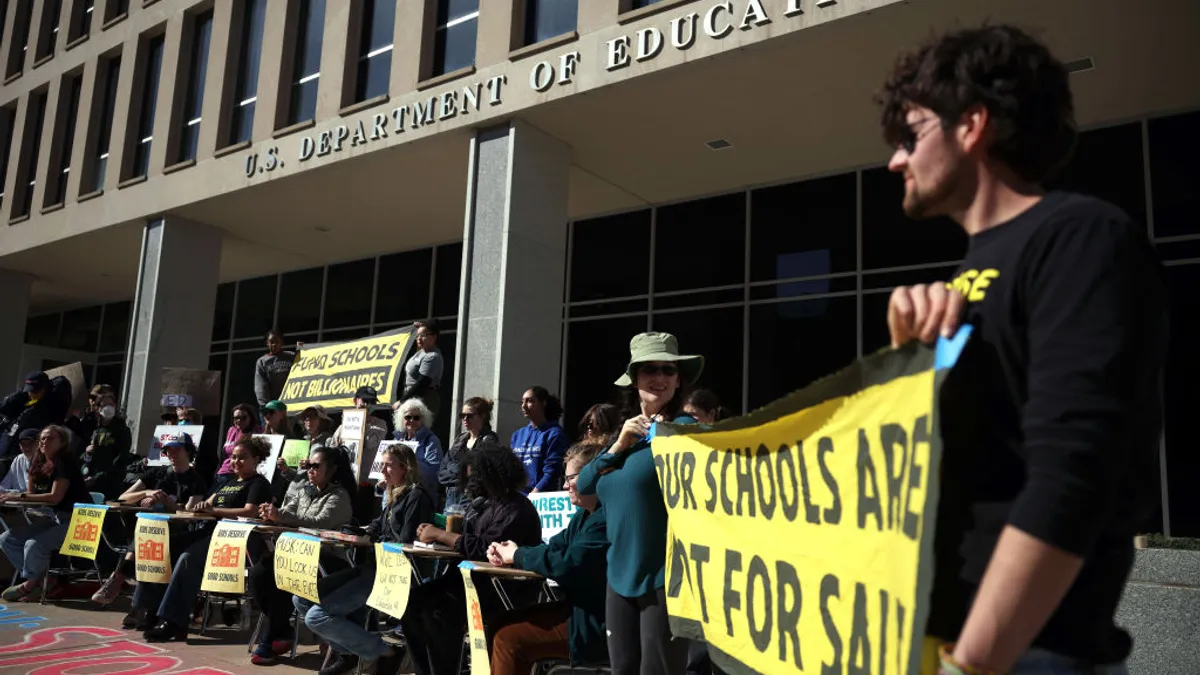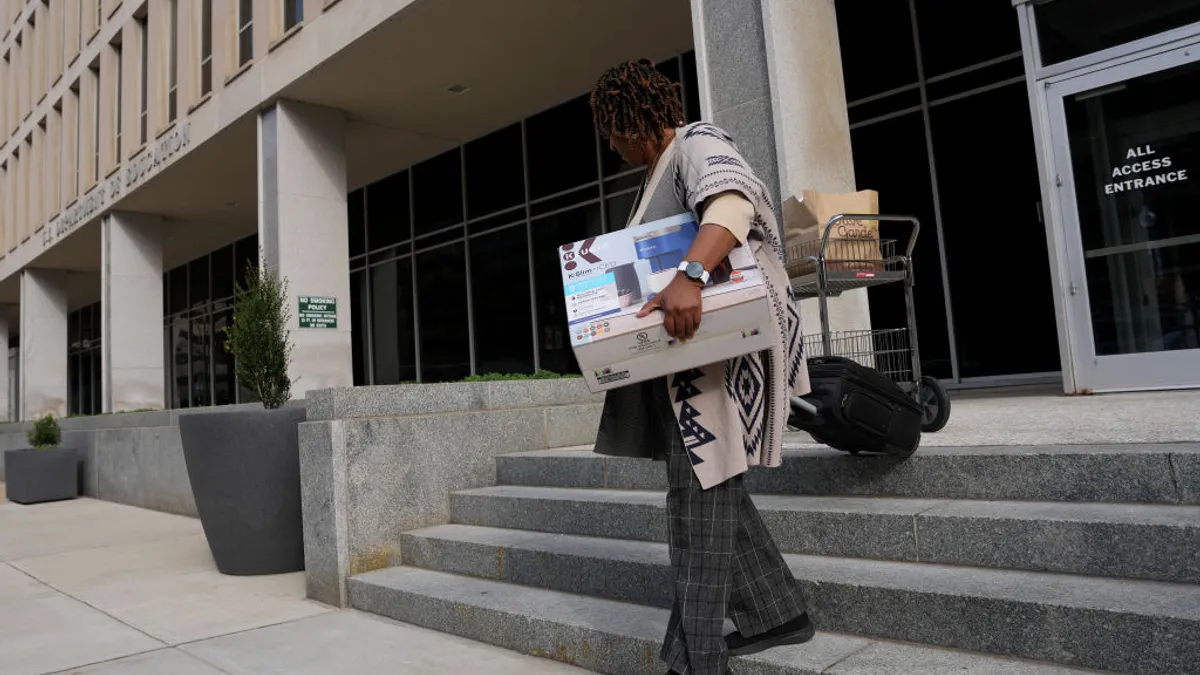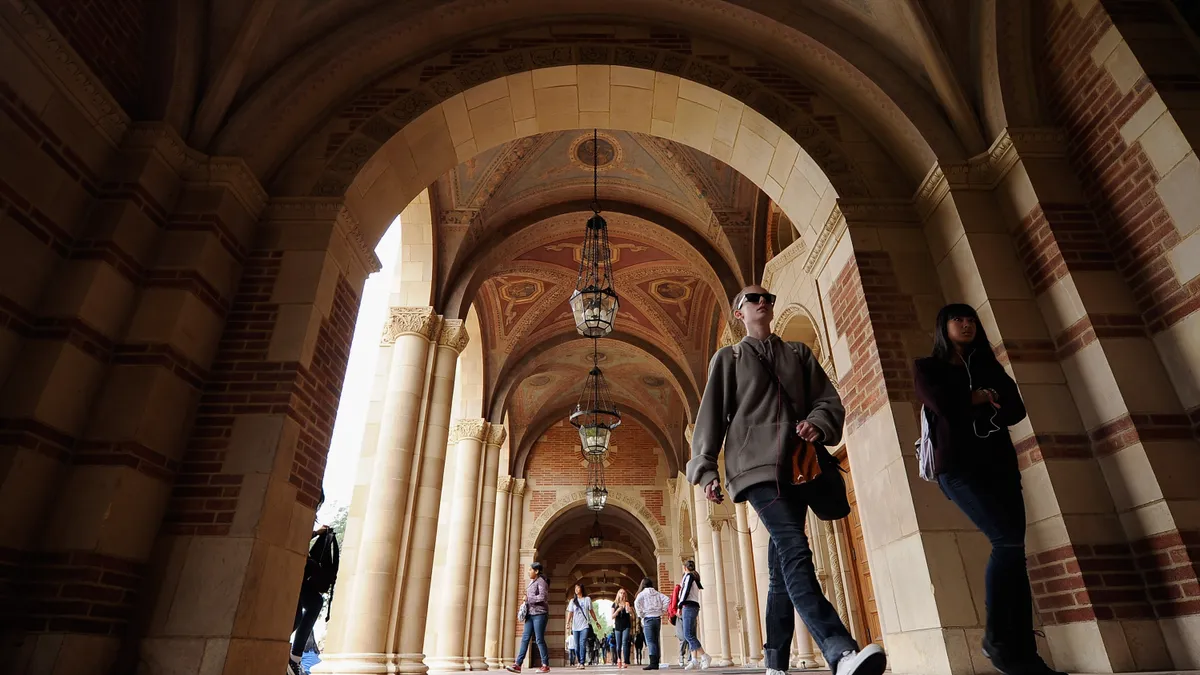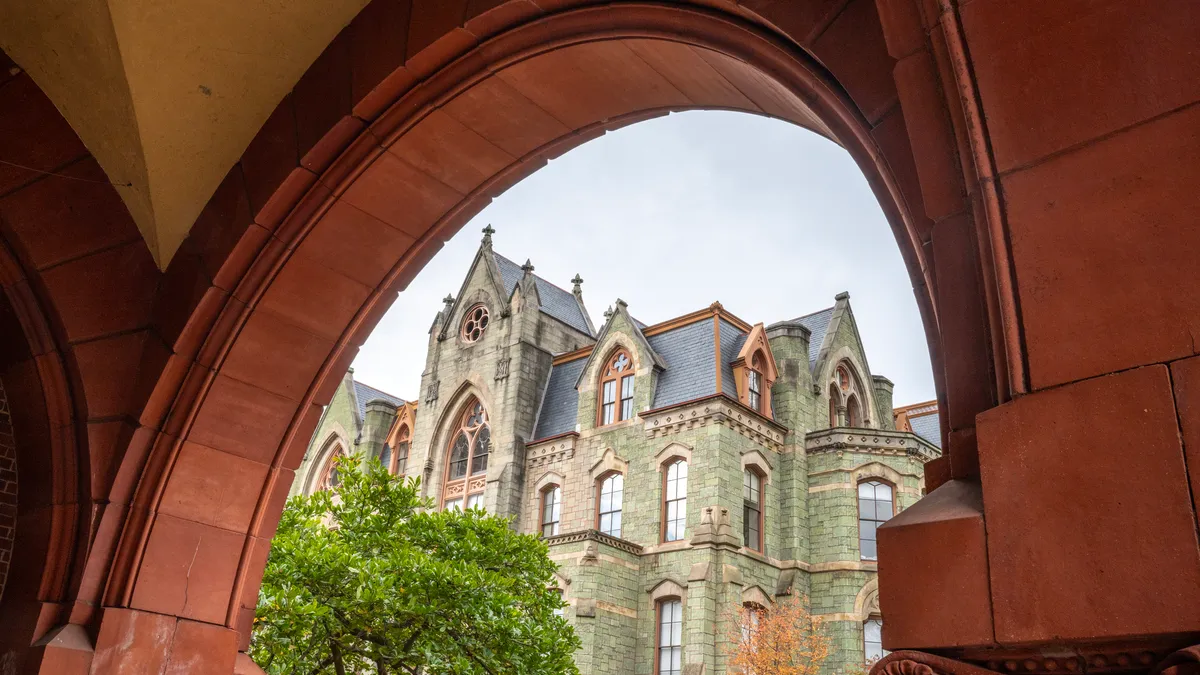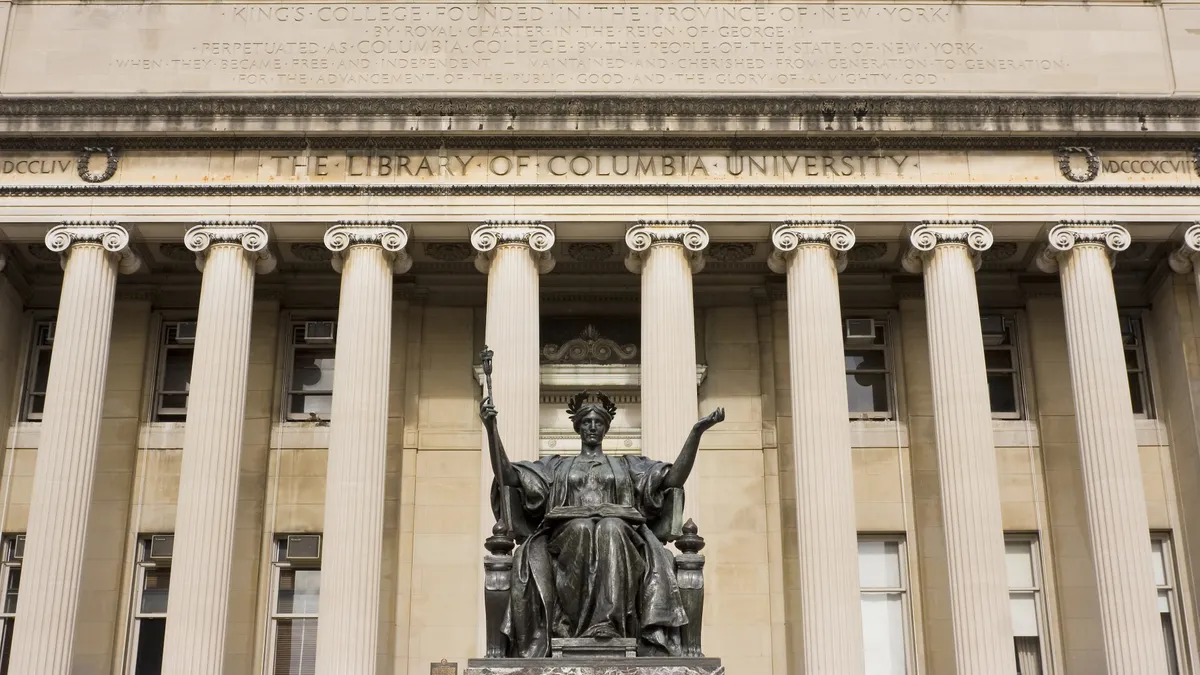Six Republican-led House committees released a 43-page report Thursday accusing colleges of failing to crack down on campus antisemitism and recommending stronger oversight from both the U.S. Department of Education and other federal agencies that award research grants.
The report is the culmination of an investigation House Speaker Mike Johnson announced in April, at the height of campus unrest over the Israel-Hamas war. Johnson said at the time that colleges’ federal funding and tax benefits would be scrutinized by several House committees.
The new report comes from six committees: Education and the Workforce; Ways and Means; Energy and Commerce; Judiciary; Oversight; and Veterans’ Affairs.
The newly released report — which House Republicans cast as meeting a “fateful moment with moral clarity” — offers a blueprint on some of the initiatives the GOP plans to pursue during the next session of Congress, which begins Jan. 3.
“Over the past seven months, these committees have done important work. They’ve heard from government agencies, students, and universities, and did a deep dive into the ways we can stop anti-Jewish hate,” Johnson said in a statement Thursday. “It’s our intent to take this report, its recommendations, and act.”
The report echoes many of the findings in the House education committee’s scathing 325-page investigation, released Oct. 31, into 11 high-profile colleges.
Calls for campus changes
In both reports, lawmakers accused colleges of likely violating Title VI, which requires federally funded institutions to protect students from discrimination based on national origin, race or color. Each report also alleged that universities failed to enforce their own campus rules and made “shocking concessions” to students who set up protest encampments.
“The reputation of many of these schools has been in free fall,” Rep. Virginia Foxx, the chair of the House’s education committee, said in a statement Thursday. “Stopping that free fall comes down to one word: accountability.”
Lawmakers released a litany of recommendations, including that colleges enforce their own campus conduct rules and discipline employees and students who don’t comply.
The suggestions come after many colleges tightened their protest policies ahead of the fall term, moving to ban encampments or restrict when and where students could demonstrate. Amid those changes, pro-Palestinian protests on campuses have fallen dramatically.
Universities and other schools saw about 3,200 pro-Palestinian demonstrations during the first six months of 2024, nearly triple the roughly 1,100 in the second half of the year, according to the Crowd Counting Consortium, a data project from of the Harvard Kennedy School and the University of Connecticut.
The new House report also said that universities must consider discrimination against Zionists to be a civil rights violation. At least two institutions — the University of Illinois Urbana-Champaign and New York University — already have policies in place that align with this recommendation.
NYU's student conduct guidelines, updated in August, include examples of anti-Zionist behavior as misconduct.
“Using code words, like ‘Zionist,’ does not eliminate the possibility that your speech violates the [nondiscrimination and anti-harassment] Policy,” the NYU document says. “For many Jewish people, Zionism is a part of their Jewish identity.”
The university’s chapter of the Faculty and Staff for Justice in Palestine decried the change, arguing that it “equates criticism of Zionism with discrimination against Jewish people.”
Calls for increased federal oversight
Lawmakers also made recommendations for the government’s executive branch, accusing the Biden administration of failing to hold colleges accountable for potential Title VI violations.
“The Department of Education has not imposed real consequences for noncompliant institutions, initiated proactive compliance reviews or directed investigations as called for by its own procedures,” the report says.
The department’s Office for Civil Rights has opened nearly 160 investigations into colleges and K-12 schools over possible shared ancestry discrimination since the Oct. 7, 2023, Hamas attack on Israel, an Education Department spokesperson said Thursday via email.
During the Biden administration, the Education Department has secured 19 resolution agreements over shared ancestry discrimination, compared with six under the previous administration, according to the spokesperson. While the Education Department welcomes the work from House lawmakers on the topic and continues to “leverage its limited resources” to resolve complaints, the agency needs additional funding, the spokesperson said.
“Flat funding does not keep pace with the increased costs of operations, preventing OCR from being able to replace any staff member who leaves, much less increase staff numbers,” the spokesperson said. “These costs have material impacts on OCR’s ability to timely and effectively process the very high number of complaints filed with the office.”
In June, the agency began resolving some of the recently opened probes. In the first two, the Education Department said both the University of Michigan and the City University of New York system mishandled discrimination complaints leveled since the Oct. 7 attack.
Lawmakers also said the agency should more aggressively enforce the Clery Act, which mandates that federally funded colleges provide notices about public safety issues and support victims of violence. Clery Act violations include antisemitic assaults on Jewish students.
Thursday's report further threatens colleges with legislation that would pull Title IV federal financial aid if they boycott or divest from Israel — a common demand from pro-Palestinian protesters.
“Congress can help stop this madness by passing legislation so any institution of higher education that contravenes U.S. foreign policy by boycotting or divesting from Israel will become ineligible for federal student aid under Title IV,” the report says.
Lawmakers likewise took aim at federal research funding for colleges.
In May, two of the House committees wrote to U.S. Secretary of Health and Human Services Xavier Becerra to ask what the agency was doing to ensure colleges receiving federal research grants were maintaining discrimination-free environments.
The letter accused six high-profile colleges that receive grants from the National Institutes of Health — including the University of Southern California and Yale University — of failing to crack down on student protests that they described as antisemitic. In the new report, the committees said the agency never provided a meaningful response to the lawmakers’ specific questions.
The U.S. Department of Health and Human Services did not immediately respond to a request for comment.
The lawmakers on Thursday recommended that NIH increase oversight of the colleges that receive research funding. They also suggest that NIH-funded institutions create task forces to review their curricula for “bias, discrimination, indoctrination, etc., to ensure that students are not being subjected to politicized or biased educations.”








